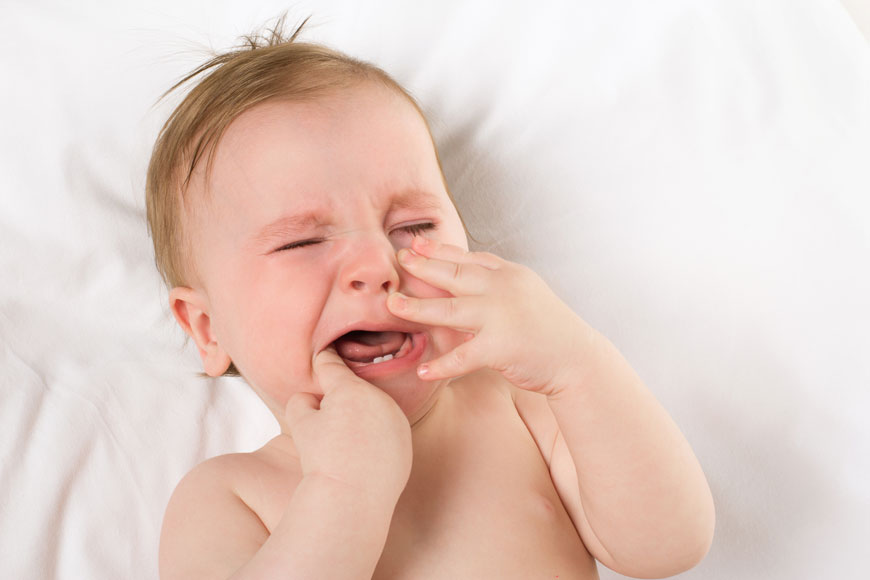Baby Teething: Symptoms, Signs, And How To Relieve The Pain
All about teething...
7 March 2018
Editor

There are many development stages that mums look for in their little ones. However, teething could be one of those gruelling milestones for the whole family.
Teething is a very painful and uncomfortable development stage for babies, and hurtful for their parents who can’t really do much about it, especially for new parents who have no experience yet with babies.
And unfortunately, babies get only a couple of months of rest after birth before they start teething. As teeth usually start popping at around 6 months old on average. Some babies even start through 3 months old, or as late as 1 year old. However, no matter when babies start teething, they should have 20 primary teeth by the age of 3 years old.
Teeth actually start developing while your baby is still in womb. However, they only break through during the early months of his life. And the bottom two middle teeth are usually the first to appear, then the top two middle ones, then those along the sides and back.
Teeth usually pop one at a time, or several at once. And don’t worry if not all of them come in straight, as they will straighten out with time.
The very last teeth to appear are the second molars in the very back of the mouth on the top and bottom. And they usually come in at around your baby’s second birthday. So by 3 years old, your little one should have all of his 20 baby teeth, which start to fall out when the permanent ones are ready at around the age of 6.
Signs Of Teething
- Trouble sleeping
- Drooling
- Swollen gums
- A tooth visible below the gum
- Irritability
- Baby rubbing face
- Trying to bite, chew, and suck on everything
- Baby rejecting food
- Grabbing their ears
Symptoms Of Teething
Some parents reported their babies getting fever, diarrhea or a runny nose while teething. However, there’s no scientific proof teething can cause any of these symptoms.
There might be a slight rise in baby’s body temperature while teething, but a true fever and diarrhea are definitely not normal symptoms. We would advise visiting your baby’s doctor if he experiences the aforementioned symptoms, or others like: lack of appetite, vomiting, or lethargy.
What To Do When Your Baby Is Teething
While there’s nothing much to be done, parents can help their baby feel better while teething by:
- Giving them something to chew on, like a teething ring or a cold washcloth
- Rub your clean finger gently over your baby’s gum to ease the pain
- If your baby is eating solids, you can give him some cold foods
- If your baby is eating finger food, you can give him teething biscuits
- Tags:
- Teething
- baby features
- babies

























.png?itok=SvZPqMHH)




.png?itok=uB2ieOR7)












